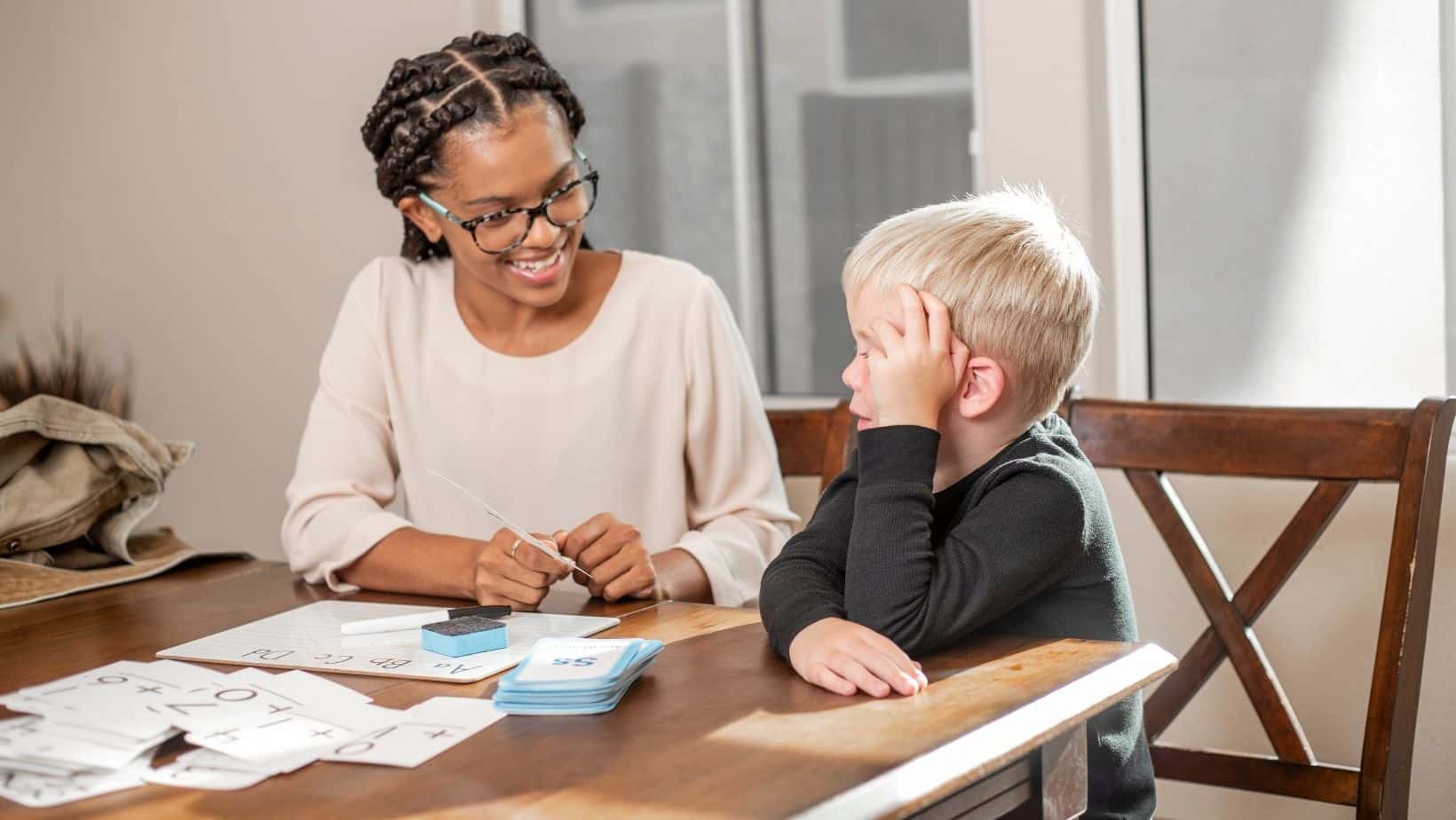Sulit untuk membayangkan bahwa orang tua mana pun tidak secara aktif menginginkan dan berupaya mencapai hasil terbaik bagi anak-anak mereka. Yang kami maksud bukan memilih sekolah yang tepat atau memiliki jaringan sosial yang tepat, meskipun faktor-faktor tersebut jelas penting—mungkin terlalu penting dalam masyarakat kita yang mengutamakan status. Kami juga tidak percaya bahwa rumah besar yang dilengkapi dengan segala kemudahan berada di urutan teratas daftar orang tua tentang apa yang terbaik bagi anak-anak mereka.
Kepercayaan diri dan harga diri merupakan kualitas terpenting yang dibutuhkan anak muda untuk berkembang dalam hidup—di antaranya adalah pendidikan dan kecerdasan emosional. Kedua sifat ini berbeda satu sama lain. Intinya, harga diri adalah cara Anda memandang diri sendiri: apakah Anda tersiksa oleh hal-hal negatif atau apakah Anda memiliki citra diri yang positif? Sebaliknya, kepercayaan diri berkaitan dengan seberapa efektif Anda menangani keadaan tertentu.
Seseorang dapat memiliki rasa percaya diri tanpa memiliki ekspektasi yang tinggi terhadap dirinya sendiri, tetapi memiliki keyakinan yang sama terhadap diri sendiri dan kemampuan adalah kunci untuk menemukan keseimbangan dan kepuasan sepanjang hidup seseorang. Semua pengalaman hidup kita—dari prestasi akademis hingga karier dan kesuksesan pribadi—didorong oleh dua persepsi diri ini. Oleh karena itu, membangun harga diri dan rasa percaya diri anak Anda harus menjadi prioritas utama Anda. Tiger Campus telah menguraikan teknik-teknik bagi Anda untuk mendukung anak Anda dalam menemukan dan tumbuh menjadi diri mereka yang terbaik.
Aktivitas dan Permainan untuk Menumbuhkan Rasa Percaya Diri pada Anak Anda
Tahun-tahun pembentukan anak adalah masa eksplorasi yang konstan. Mereka belajar berguling, duduk, makan makanan padat, dan meniru suara dalam beberapa bulan setelah lahir. Mereka mungkin belajar makan sendiri, mengucapkan kata-kata pertama mereka, dan mulai berjalan dalam waktu satu tahun. Anak itu tidak sepenuhnya memahami betapa menakjubkannya perkembangan ini sampai mereka berusia sekitar tiga tahun. Jika Anda pernah mengamati seorang anak dengan ekspresi kagum dan menawan yang mengatakan: "Wow! Lihat apa yang saya capai! Dia menyadari potensinya yang tak terbatas pada saat itu, dengan tegas menempatkan dirinya di jalur eksplorasi sehingga mereka dapat berulang kali merasakan sensasi yang signifikan itu.
Sayangnya, tantangan yang didorong oleh diri sendiri itu lenyap pada usia 5 tahun – tepat saat ia mulai bersekolah. Anak-anak tentu saja masih mencoba hal-hal baru, tetapi mereka melakukannya dengan lebih banyak pemikiran dan lebih sedikit pembenaran seperti "biarkan aku mencoba..." Pada saat itu, keluarga harus turun tangan dan mendukung individu tersebut dalam melanjutkan perjalanan menemukan jati dirinya dengan menumbuhkan nilai-nilai keluarga yang positif dan memperkuat kepercayaan diri, yang mengarah pada rasa percaya diri.
Perasaan positif terhadap diri sendiri dan citra tubuh yang sehat didorong oleh aktivitas fisik. Oleh karena itu, mendaftarkan anak Anda dalam program olahraga atau menjadikan kebugaran sebagai kegiatan keluarga akan menjadi cara yang hebat bagi mereka untuk merasa baik tentang diri mereka sendiri.
Anda mungkin berpikir tentang:
- Pelajaran menari
- Pelajaran dalam seni bela diri
- Kelas anggar
- Sesi yoga
- Bermain basket atau bergabung dengan tim sepak bola
- Bergabung dengan tim dayung atau renang
Latihan yang meningkatkan rasa percaya diri tidak selalu melibatkan tim, pelajaran, atau seluruh keluarga. Anda mungkin berpikir bahwa anak-anak berusia antara 5 dan 8 tahun adalah kandidat terbaik untuk belajar mengendarai sepeda, skuter, sepatu roda, atau papan luncur.
Anak Anda mungkin lebih terlibat dalam aktivitas otak jika mereka berusia lebih dari delapan tahun. Kami menyarankan mereka untuk bergabung dengan klub drama sehingga mereka dapat berakting di teater lokal. Kelompok debat atau paduan suara dapat menjadi pilihan lain bagi mereka untuk mencoba berbicara di depan umum. Jika orang tersebut masih cenderung terlibat dalam aktivitas fisik, mereka mungkin lebih menyukai olahraga yang lebih berat seperti atletik, panjat tebing, atau menunggang kuda.
Pemuda dan harga diri
Menurut penelitian, harga diri anak-anak mencapai puncaknya sekitar usia lima tahun, atau tepat saat kesadaran diri mulai muncul. Namun, saat memasuki masa remaja, keraguan terhadap diri sendiri sering kali muncul. Remaja, paling banter, memiliki rasa harga diri yang minim dan tidak memiliki rasa harga diri yang sehat.
Ada banyak cara yang dapat Anda lakukan untuk mendukung anak Anda mengatasi keraguan terhadap diri sendiri dan meningkatkan harga diri, mulai dari melibatkan mereka dalam aktivitas yang akan menonjolkan bakat mereka, baik di bidang atletik maupun akademis, hingga menjadi sukarelawan untuk kegiatan amal.
Menjadi relawan merupakan teknik yang sangat efektif untuk mengatasi harga diri yang rendah karena hal itu menunjukkan nilai diri sendiri kepada orang lain. Selain itu, hal itu memungkinkan orang untuk menemukan pentingnya kasih sayang, sifat penting yang menempati peringkat tinggi pada skala kecerdasan emosional. Selain itu, setelah seharian menjadi relawan, Anda dan remaja Anda dapat berbagi pengalaman dan kemudian berkumpul untuk bermain Totem yang menyenangkan. Tidak mengenalnya? Artikel pendamping kami memiliki deskripsi lengkap tentangnya.
Buku untuk Membantu Anak Anda Mengembangkan Rasa Percaya Diri
Mengingat pentingnya rasa percaya diri dan harga diri bagi kesehatan mental dan kebahagiaan anak-anak dan orang dewasa, tidak mengherankan bahwa ada banyak sekali buku yang tersedia tentang mengatasi kekurangan yang dirasakan dan menumbuhkan harga diri. Beberapa di antaranya diberikan kepada kita oleh spesialis kesehatan mental, sementara yang lain ditulis oleh para penyintas pengalaman traumatis. Novel-novel ini menggambarkan perjuangan mereka dalam menghadapi dan mengatasi tantangan, yang pada akhirnya menjadi lebih baik dan lebih kuat.
Stick Up for Yourself adalah buku saku yang hidup dan penuh warna dengan teks yang dapat dibaca anak-anak secara mandiri. Mereka memperoleh pemahaman tentang cara menjadi lebih agresif dan menumbuhkan ketenangan batin. Segmen tentang memperoleh kemampuan yang diperlukan untuk membela diri terhadap para penindas di media sosial juga disertakan.
I Can Make a Difference merupakan tambahan yang bagus untuk daftar pilihan. Membuat perbedaan di dunia merupakan prioritas, seperti halnya memiliki kebanggaan pada diri sendiri, kemampuan dan prestasi seseorang, dan komunitas seseorang. Meskipun ada banyak buku yang tersedia bagi anak-anak untuk dibaca dan dipahami, baik dalam bentuk narasi atau sebagai panduan pengembangan diri, ada juga banyak buku panduan yang ditujukan bagi orang tua.
Meskipun Stress-Free Kids mungkin tampak seperti pendekatan aneh untuk meningkatkan harga diri anak, ada bukti kuat yang mendukung gagasan bahwa jika anak-anak dapat belajar mengelola stres dalam hidup mereka, mereka akan lebih bahagia dan meraih lebih banyak prestasi.
Keberhasilan pasti akan meningkatkan harga diri seseorang.
Buku panduan orang tua untuk menumbuhkan harga diri anak ini sangat sukses sehingga menginspirasi sebuah gerakan yang disebut Stress-Free Kids! Jika Anda memiliki anak remaja yang perlu mendapatkan kembali kepercayaan diri yang mereka miliki beberapa tahun yang lalu, Anda mungkin memerlukan Confidence & Self-Esteem for Teens karena program Ms. Lite untuk meningkatkan harga diri anak berakhir sebelum mereka menginjak usia remaja. Setiap remaja dapat mengaitkan pengalaman hidup sehari-hari dalam buku ini dan menggunakannya untuk membangun rasa percaya diri yang lebih kuat. Jika membaca untuk memulihkan kepercayaan diri anak Anda dan diri Anda sendiri menarik bagi Anda, Anda dapat menemukan lebih banyak saran dalam esai mendalam kami tentang topik tersebut.
Cara Membantu Anak Anda Mengembangkan Harga Diri
Untuk meningkatkan harga diri anak Anda, tidak ada teknik rahasia atau strategi khusus. Anda tidak diharuskan untuk mendaftar di kursus tertentu atau mengirim anak Anda ke les apa pun. Mencintai dan menghargai anak Anda adalah metode terbaik, paling sederhana, dan paling mendasar untuk membantu mereka mengembangkan harga diri dan kepercayaan diri.
Tentu saja, yang dimaksud dengan itu adalah menghargai mereka, bukan menghakimi nilai mereka. Ketika seorang anak muda dihargai, mereka merasa dipahami dan diterima. Mereka menikmati rasa memiliki dan rasa hormat yang kuat, dan mereka belajar dari kesalahan mereka bahwa belas kasih lebih baik daripada kritik. Orang-orang akan berasumsi bahwa mencintai dan menghargai anak-anak mereka adalah hal yang wajar, tetapi dengan epidemi harga diri yang buruk yang menimpa anak-anak kita, jelas bahwa kita masih jauh dari jalur yang benar. Bagaimana kita dapat melanjutkan pekerjaan kita?
Bantu anak Anda belajar melakukan berbagai hal, mulai dari mengerjakan tugas rumah tangga hingga mengembangkan kemampuan baru seperti bersepeda atau bahkan memperbaiki mobil. Ingatlah bahwa membantu anak belajar tidak berarti melakukan segala hal untuk mereka sambil memberikan instruksi. Baik itu memasak atau mengerjakan kayu, biarkan anak Anda mengotori tangannya. Berikan bimbingan hanya bila diperlukan, dan bantu hanya bila diminta.
Tentang Pujian
Anak-anak di AS saat ini terpapar pada budaya di mana setiap orang adalah pemenang, terlepas dari apakah mereka benar-benar menang atau tidak. Meskipun pujian yang tidak beralasan seperti itu mungkin bermanfaat bagi anak-anak yang mungkin tidak berusaha keras, pujian itu sebenarnya berdampak negatif pada mereka yang melakukannya.
Mengapa harus berusaha lebih keras, jika Anda bisa mendapatkan hasil yang sama dengan usaha lebih sedikit? Penting untuk menggunakan pujian dengan bijak dan hati-hati. Memberikan pujian yang berlebihan kepada anak dapat membuat mereka percaya bahwa usaha sekecil apa pun layak mendapatkan banyak penguatan positif, atau lebih buruk lagi, pujian tersebut dapat dianggap palsu dan klise. Anda juga dapat membayangkan akibat dari tidak menggunakan pujian sama sekali. Memberikan pujian atas prestasi daripada usaha dan sikap mungkin merupakan cara yang buruk untuk menggunakan pujian. Alih-alih memberi selamat kepada seseorang atas prestasinya dalam memperoleh nilai bagus pada ujian, Anda dapat memuji usahanya dalam belajar untuk ujian atau kegigihannya dalam bekerja keras pada mata pelajaran yang menurutnya membosankan (sikap).
Sayangnya, beberapa orang mungkin berpendapat bahwa tidak ada daftar periksa atau peta jalan untuk membesarkan anak Anda agar memiliki rasa harga diri dan kepercayaan diri yang sehat. Namun, ada banyak dukungan dan arahan yang tersedia bagi orang tua yang sedang berjuang; jika Anda memiliki kebutuhan lebih lanjut untuk menumbuhkan harga diri dan kepercayaan diri anak-anak, silakan mendaftar di program kami.
Daftar untuk uji coba gratis hari ini!: https://www.tigercampus.com.my/free-trial/
Whatsapp kami untuk pertanyaan segera sekarang: +60125022560 https://wa.link/ptaeb1








